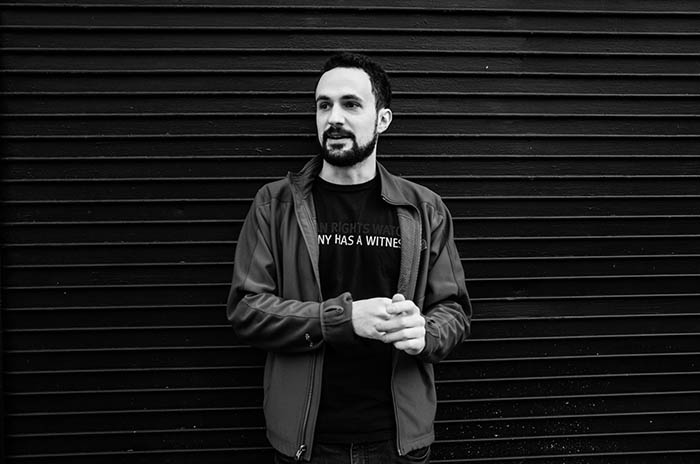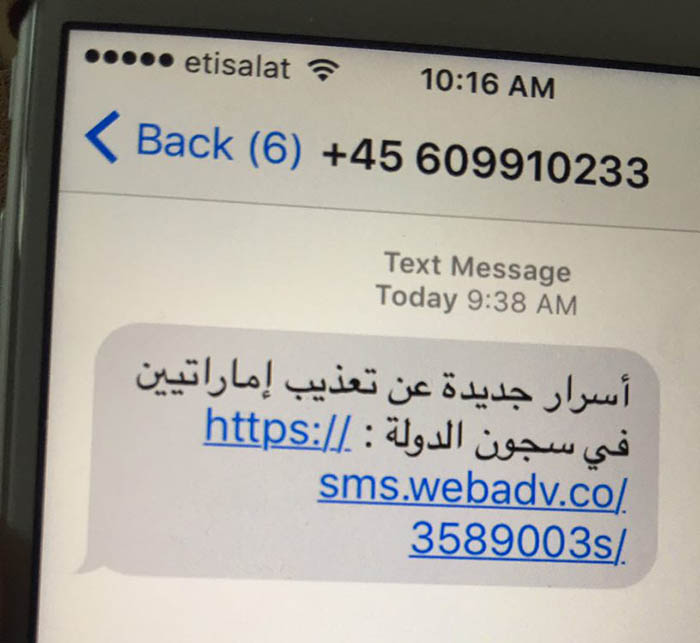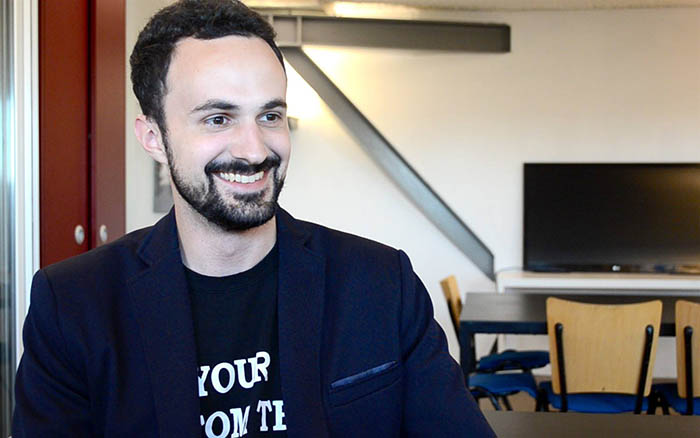26 Apr 2017 | Digital Freedom, Events, Turkey
[vc_row][vc_column][vc_single_image image=”89947″ img_size=”full” add_caption=”yes” alignment=”center”][vc_column_text]Join Index on Censorship, English PEN, Amnesty International UK, Reporters Sans Frontières, PEN International and the Professional Cartoonists’ Organisation for our vigil outside the Turkish Embassy in London, in protest over the detention of journalists and writers in Turkey. The London protest is one of several taking place at Turkish embassies around the world on 3 May, World Press Freedom Day.
Turkey is currently the world’s biggest jailer of journalists: one third of all imprisoned journalists in the world are being held in Turkish prisons, the vast majority waiting to be brought to trial. Meanwhile, more than 160 media outlets have been closed.
Let us know if you’re coming and invite your friends via the Facebook event page and please share details of the vigil on Twitter with the hashtag #FreeTurkeyMedia
[/vc_column_text][vc_column_text]
[/vc_column_text][/vc_column][/vc_row][vc_row][vc_column][vc_cta h2=”TAKE ACTION” h2_font_container=”color:%23dd3333″ h2_use_theme_fonts=”yes” shape=”square” use_custom_fonts_h2=”true”]Show your support on social media
We are asking fellow journalists, writers, and supporters of freedom of expression to show their support for the many journalists and writers currently imprisoned and on trial in Turkey. Please follow @FreeTurkeyMedia on Twitter and show your support by tweeting a photo with a sign reading #FreeTurkeyMedia #GazetecilikSuçDeğildir
Write to the authorities
You can send a letter via Amnesty’s website to Minister of Justice Bekir Bozdağ calling for the release of our imprisoned colleagues.
Please also write to the Turkish authorities
- Calling for all detained writers and journalists to have access to lawyers and to be released if they are not to be charged with a recognisably criminal offence and tried promptly in accordance with international fair trial standards;
- Calling on the authorities not to use the state of emergency to crack down on peaceful dissent, civil society, media and education.
President Recep Tayyip Erdoğan
Cumhurbaşkanlığı Külliyesi
06560 Beştepe-Ankara
Tel : (+90 312) 525 55 55
Fax : (+90 312) 525 58 31
E-mail: [email protected]
Email: [email protected]
Facebook: https://www.facebook.com/RecepTayyipErdogan
Twitter: @RT_Erdogan
Süleyman Soylu
Minister of Interior Affairs
Ministry of Interior Affairs
T.C. İçişleri Bakanlığı, Bakanlıklar / Ankara, Republic of Turkey
Tel: (+90 312) 422 40 00
E-mail: [email protected]
Binali Yıldırım
Prime Minister
Çankaya Mah. Ziaur Rahman Cad. Çankaya / Ankara
Tel: (+90 312) 403 50 00
Fax: (+90 312) 422 10 00[/vc_cta][/vc_column][/vc_row][vc_row][vc_column][vc_single_image image=”89946″ img_size=”full” add_caption=”yes” alignment=”center”][/vc_column][/vc_row]
25 Apr 2017 | Mapping Media Freedom, News and features, Serbia
[vc_row][vc_column][vc_single_image image=”89875″ img_size=”full” add_caption=”yes”][vc_column_text]A few days before the 2 April 2017 Serbian presidential elections, a picture was posted on Twitter that caused an unexpected storm.
The picture, taken three days before the vote, which was widely expected to be won by the current prime minister Aleksandar Vucic, showed a copy of each daily newspaper from that day laid out on a table. Yet every paper looked the same. Each was wrapped in a blue, red and white election campaign poster of Vucic’s Serbian Progressive Party (SNS).
“It was a shock,” said Slavica Lekic, the newly appointed president of the Independent Journalist Association of Serbia (NUNS), from his office in Belgrade. “With this, Aleksandar Vucic clearly demonstrated that he can control over everything in this country.”
The mass advertising on the front page of the nation’s newspapers was for many a step too far; proof of how powerful Vucic and his party had become, and of the financial control they exert over Serbia’s media. Vucic won the election by a landslide, but the picture’s effect lingered. It was an important reason why, on the day after Vucic’ huge victory, tens of thousands of young Serbs took to the streets across the country to protest.
The protesters, at first mainly students, organised themselves on social media using the hashtag #protivdiktature, which means “against dictatorship”. Thousands have been protesting on a daily basis ever since. They’re worried about the state of democracy and media freedom in the country where the president-elect is consolidating his power over all institutions, leaving little room for critical voices.
Media freedom has declined since SNS came to power in 2012, and deteriorated further after Vucic became Prime Minister in 2014, according to Reporters Without Borders.
Journalists increasingly face economic and editorial pressure as well as threats and intimidation when they are critical of the government. Independent media are often the subject of smear campaigns by pro-government media outlets and TV stations, targeting them as foreign mercenaries and enemies of the state.
Lekic points out that most of Serbia’s mainstream media, including private media, are indirectly controlled by the government. There are strong ties between the government and the business community, giving both a huge leverage over advertising budgets, he explains. “When Vucic came to power he arrested the richest businessman in Serbia, Miroslav Miskovic,” says Lekic.“That act frightened all the other businesses, which are now doing whatever they can to please him.”
Even before the vote, there were opposition complaints about the uneven nature of the media’s coverage of the campaign. According to a report by the Bureau for Social Research, who monitored the campaign, Vucic appeared on television more than all the other candidates combined, and was usually portrayed in a positive light.
“He directly controls the most popular TV station, TV Pink, and the most read newspaper, Informer,” says Lekic. “The other media are subject to self-censorship due to the pressure of advertisers connected to the government.” Lekic is convinced that Vucic’s move from prime minister to president will lead to even more difficulties for Serbia’s independent media. “This is definitely the end of freedom in journalism in Serbia,” he says.
Aside from a few online voices, the only critical newspaper is the daily Danas, which means “Today” in Serbian. The paper was founded in 1997 during the repressive regime of strongman Slobodan Milosevic but grew to become a free voice in Serbia. But today Danas is struggling to stay alive. Like many across the world, business has been tough over the past few years. But it became a lot tougher when nearly every single advertiser pulled out, all within a few months.
“The problem is that nobody dares to advertise in a paper that reports critically on the government and the prime minister,” Lekic explained. “Vucic and his people have targeted Danas as a hostile newspaper.”
Protesters have been holding Danas papers in the air, using it as a symbol of the lack of media freedom. They’ve urged Serbs to buy Danas and stop them from going out of business. Danas is being sold during the protests, and people are queuing to get a copy from street sellers.
“The campaign to save our paper is working,” says Milos Mitrovic, a journalist at Danas. “Sales are actually going up. People are taking selfies with Danas and sending them to us. It’s incredible.”
There have even been reports of companies donating to the paper, but urging them not to print any adverts as they would rather stay anonymous.
Every evening the protesters march through the city, passing the building of the state broadcaster RTS, blaming the station for not covering the protests on TV. “At first they were not showing it at all,” said one protester in Belgrade. “Now they are downplaying the numbers or saying that we are paid by foreign powers.”
But even recognising the protests is progress. “There is more coverage of the protests in international press than in Serbian media,” says Stevan Dojcinovic, editor-in-chief for the investigative journalism network KRIK, nominees for the 2017 Freedom of Expression Award for journalism. His collective has investigated many cases of corruption and misuse of power by the Vucic government. Dojcinovic points out that their investigations are also widely ignored by Serbia’s mainstream media. “RTS didn’t publish anything on the interview we did with the wife of Belgrade’s mayor, Sinisa Mali,” he said. In that interview, Mali revealed examples of corruption in which her ex-husband was directly involved.
Meanwhile, Vucic, who enjoys support from both the European Union and Russia, has calmly addressed the protesters during a press conference. “We are a democratic country and everybody has the right to be pleased or displeased with the election outcome,” he said. “Those who have time to protest can protest as long as they keep it peaceful.”
Lekic has only recently been appointed as president of NUNS but is clear on what the big issues facing independent media in Serbia are. “We don’t have institutionalised censorship in the classical sense but we do have frightened and underpaid journalists who think they have to be obedient to be able to keep their jobs,” he says. “This is how self-censorship kicks in and we have to change that.”
In fact, Lekic has already had his fair share of threats and intimidation. He was the subject of smear campaigns by TV Pink and Informer. He’s been labelled a foreign spy more times than he can remember. “I’ve been a journalist for 37 years but only in the last decade I’ve got used to being a target,” he says. His biggest worry is the effect it has on his family. “My daughter of twelve once called me from school, she was crying because a boy in her class had told her that her dad is a criminal,” he says. “He’d heard so on TV.” [/vc_column_text][/vc_column][/vc_row][vc_row][vc_column][vc_basic_grid post_type=”post” max_items=”4″ element_width=”6″ grid_id=”vc_gid:1493107922412-e3b33cbb-00e3-9″ taxonomies=”113″][/vc_column][/vc_row]
18 Apr 2017 | Asia and Pacific, Awards, Digital Freedom, Fellowship, Fellowship 2016, News and features, Pakistan
[vc_row][vc_column][vc_column_text]

Farieha Aziz, director of 2016 Freedom of Expression Campaigning Award winner Bolo Bhi (Photo: Elina Kansikas for Index on Censorship)
It has been eight months since the Prevention of Electronic Crimes Act (PECA), also known as the cyber crimes bill, was passed and enacted in Pakistan. The law, which has been in place since August 2016, is meant to limit the amount of hate speech online and protect internet users against malicious cyber crimes, however, many are concerned that it has not followed up on these promises.
Bolo Bhi, a non-profit organisation and activist group and winners of the 2016 Index on Censorship Freedom of Expression Award for Campaigning, has been vehemently opposed to PECA from the beginning because of its potential human rights violations and threats to the right to privacy and freedom of expression as the law would allow more unchecked government power and internet regulation.
Farieha Aziz, the director of Bolo Bhi, told Index on Censorship that there are simply not enough rules, oversight, and public awareness for the law to truly be effective in preventing cyber crime.
“If the government was really serious about the implementation of the law for the protection of the people, eight months on, where are the rules? Courts? Capacity of the Federal Investigation Agency, Pakistan Telecommunication Authority, prosecutors and courts to deal with cases?” Aziz said. “Why the deafening silence on this both the government and the opposition?”
Aziz said that government critics and other dissenters have been silenced as a result of the law, but the government has yet to make any effective moves against real malicious threats. She noted that the Khabaristan Times, a satirical media organisation, was recently blocked online under Section 38 of PECA which allows the government to remove and censor any “objectionable content”.
“This essentially stems from a failure to still grasp how the internet and technology function, and where and how the law can or cannot be applied,” Aziz said.
Bolo Bhi has published a document on its website titled “Recommendations for Implementation and Oversight” to solve the numerous problems regarding effective and fair enforcement of PECA.
One of the main problems, Bolo Bhi noted, is confusion and lack of clarity among the public of PECA’s rules and regulations.
“Social perceptions of what constitutes stalking, harassment, bullying, etc. and the legal definitions of these as well as what constitutes a crime under law can be very different,” Bolo Bhi said in the document.
In order to combat this, Bolo Bhi recommended increasing public awareness through various resources including public service messages and helpline numbers. Bolo Bhi also suggested the creation of an online complaint facility and a more transparent case management and tracking system that would be available to the public.
Another problem with effective enforcement of PECA includes a lack of financial resources and qualified professionals for online surveillance and responding to cases.
The PTA, one of the most prominent government agencies involved with the implementation of PECA, told the Senate Standing Committee on Information Technology on the 5th of April that they do not have enough resources to properly manage and surveil all online content. Instead, the PTA suggested, the government should build closer relationships with social media websites such as Facebook and Twitter to help find and block and unacceptable or blasphemous content.
Bolo Bhi, however, suggested that the government itself should be held responsible for increasing the amount of trained investigation officers and state prosecutors who can properly handle an increasing caseload. If there is more legal and technical training for judicial officers, Bolo Bhi said, then cyber crimes can be dealt with more quickly and efficiently. Bolo Bhi also recommended increasing the number of third-party forensic labs in order to avoid further backlogging of cases.
Despite PECA’s lack of progress in creating a safe and sustainable internet for Pakistan, Bolo Bhi continues to fight on for fair and effective implementation of the Cybercrimes law.
“The law alone is no solution,” Bolo Bhi said. “Awareness of its existence, knowledge of the procedures, willingness to use it and them proper implementation for deliverance of justice that is tied with our criminal justice system and courts are all components of this, which need to be addressed simultaneously.”[/vc_column_text][/vc_column][/vc_row][vc_row][vc_column][vc_basic_grid post_type=”post” max_items=”4″ element_width=”6″ grid_id=”vc_gid:1492103286683-011373cf-290a-6″ taxonomies=”8093″][/vc_column][/vc_row]
6 Apr 2017 | Awards, Digital Freedom, News and features
[vc_row][vc_column][vc_column_text]
A schoolboy resident of Bahrain and a recent PhD student in computer science at the University of California, Berkeley, Bill Marczak co-founded Bahrain Watch in 2012. Seeking to promote effective, accountable and transparent governance, Bahrain Watch works by launching investigations and running campaigns in direct response to social media posts coming from activists on the front line. In this context, Marczak’s personal research has proved highly effective, often identifying new surveillance technologies and targeting new types of information controls that governments are employing to exert control online, both in Bahrain and across the region. In 2016 Marczak investigated several government attempts to track dissidents and journalists, notably identifying a previously unknown weakness in iPhones that had global ramifications.

Index spoke with Marczak in the run up to the Freedom of Expression Awards, where he is nominated for the Digital Activism award.
Ryan McChrystal: In the summer of 2016 you discovered a previously known weakness in Apple’s iPhone that had global ramifications. Can you talk us through how that first came to light?
Bill Marczak: In August of 2016, Ahmed Mansoor, an activist in the UAE, reached out to me after he had received suspicious text messages. I had known him previously because he gets suspicious things in his inbox or on phone quite frequently. He sent me these text messages and asked me to take a look. The messages said: “New secrets about detainees tortured in UAE prison.” And there was a link inside the text message which I recognised because it was connected to a series of websites I had been tracking for the past six months or so. I had already attributed them to the NSO Group (an Israeli spyware company).
At that point, I was able to get the spyware they were using to target Mansoor

McChrystal: What does the software actually allow governments to do? What are the dangers for activists?
Marczak: The malware that NSO sells, called Pegasus, is actually pretty sophisticated in what it can collect. In the security community, the iPhone is generally thought to be more secure because Apple goes to such lengths to lock down and make it really, really hard to install an application from outside the App Store and to do something to the device that’s not approved by Apple. The fact that this malware even existed and could affect an iPhone in the single touch of a button was very surprising. Once your phone is infected, the malware would essentially be able to see everything on the device. If you had any saved passwords, for example, they would all be sent back to whoever infected you. That person would also get the ability to intercept your calls, SMS, Whatsapp, Viber, or any other communication service you use.
Perhaps most scarily, the malware allowed the user to turn on the webcam and the microphone on your iPhone to spy on activity going on around the phone. This could be used to spy on meetings or to see who you were hanging around with.
McChrystal: And this was was the first piece of malware of its kind.
Marczak: That’s correct. It was the first known zero-day remote jailbreak for the iPhone that was used as part of spyware. A jailbreak is a piece of software that allows you to get around Apple’s security precautions for the phone. Jailbreaking started out as a way for hobbyists and enthusiasts to install their own software not approved by Apple on the iPhone, so it was a very innocuous line of research. But once iPhones became more popular, people started putting their whole lives on their phones. That’s when jailbreaks became really, really valuable to people who would want to spy on iPhone users.
Nowadays, there are companies that will pay you if you sell them software or the code that jailbreak the phone. Some companies, like Zerodium, offer up to $1.5m. Presumably they’ll then be able to sell it to interested users for even more.
McChrystal: How did Apple respond when you informed them of your discovery?
Marczak: Working with the folks at Citizen Lab, I got in touch with Apple very early on in the process to alert them of what we had found. Initially, when we called up Apple was like: “Yeah, yeah, sure, send us some details and we’ll take a look.” When we sent what we were able to pull down from those links, the tone changed right away and they realised this was really serious. They said: “Give us more information because we want to work closely with you on this.”

McChrystal: How are governments using this kind of malware maliciously? And why should human rights activists specifically be worried?
Marczak: This kind of software can be used, for instance, in legitimate criminal investigations, but it can also be used essentially for anything the government wants to use it for. Once NSO Group sells the spyware to a government, that’s where NSO’s ability to control things ends. The government can then decide who it wants to target, who it wants to infect. If sold to a government agency that has a history of abusing surveillance, it’s likely they are going to abuse it to target human rights defenders and political opponents.
It’s something that human rights activists should be concerned about because everything is moving online these days. They are on their phones, communicating with other activists, human rights violations are being documented by videos or pictures on the phone. Your confidential or secret sources might be a WhatsApp contact, or a Signal contact if you’re even more secure.
If just one person has been infected, governments can map out an entire network of human rights defenders or opponents. They can keep tabs on an entire operation or human rights infrastructure in a country.
McChrystal: By bringing this malware to light, how many people’s privacy do you think you’ve helped to protect? Is there a way to put a number on it?
Marczak: The patch that Apple released, which coincided with the report that I published with Citizen Lab, went out to every iPhone user around the world. Apple subsequently issued a patch to every Mac laptop and desktop user. The number is in the high hundred of millions, if not billions of people whose phones and computers were patched.
Of course, not all of those people would have been affected, but having that sort of broad impact was very exciting.
McChrystal: Are you yourself now in danger of cyber attacks? Have there been any attempts that you’ve noticed?
Marczak: It’s something that I’ve thought a lot about. If you look at the security industry as a whole, researchers themselves can be very easily targeted. There have been instances where foreign intelligence agencies have targeted anti-virus companies, for instance, to figure out what they are working on next.
That’s the main risk I am worried about: if some foreign intelligence agency decides “hey, Bill’s working on some interesting stuff. Let’s hack him and see what he’s up to.”
When I’ve done some work in the field, for instance in the Middle East, I think through a set of operations security procedures like how to prevent someone coming into my hotel room when I’m away and bug my laptop.

McChrystal: What’s your connection to Bahrain and how did that lead to the establishment of Bahrain Watch?
Marczak: My own connection with Bahrain began in 2002. I went to high school there because of my dad’s job. Going to high school in a place, you obviously develop a lot of connections and experiences that tie you there, at least emotionally. Bahrain very much feels like one of my homes.
While I was there, I was never much interested in the political situation. But going back to the USA for college and observing from abroad, I did start to notice by reading the international media that there were certain things not right with the country, especially in 2011, when the Arab Spring protests started. Once I saw that police were shooting protesters in the street, and that one of my homes was in crisis, I though if there was a way that I, a computer science student sitting in Berkeley, California, could do anything to have a positive impact on the situation.
At the time, I didn’t really know what to do. I started following Bahraini activists, people on the ground and those who were actually at the protests. Those involved in the Arab Spring very much engaged with the rest of the world through social media. They sometimes sent out pictures of shotgun shells or tear gas canisters, asking if anyone knew who was manufacturing and supplying the government with them.
I was able to respond to these requests and see if I could find out some new information. I started off doing research into the various kinds of weapons that the police were using. That initial research got me some recognition among activists on the ground. We got in touch and developed connections which led us to decide to found Bahrain Watch in 2012.
Bahrain Watch initially focused on these arms, but them later expanded to documenting western PR companies that the government had hired to influence the media narrative. It expanded from there to a bunch of different areas.
McChrystal: The situation for human rights activists in Bahrain is changing, and in many ways it’s become more difficult. What does this mean for Bahrain Watch operations over the next year?
Marczak: You’re definitely right that the situation on the ground is very bad. In the past year we’ve seen the continued harassment of human rights defenders on the ground. One of the things we are trying to do going forward is to is, we started off in 2012 as an all-volunteer organisation and we were very much sustained by the energies and the passions of the Arab Spring.
But in the years since, a lot of that energy has died off to an extent, not just in Bahrain, but in the broader activist community. One of our challenges going forward has been to try and formalise the organisation so that we’re actually getting funding and have the capacity and resources to undertake more longer-form types of work. We’ve got some of that already, we have gotten a bit of funding, and we’re looking mainly to continue our work with digital security, so trying to provide support and advice to dissidents on the ground to help enhance their security posture, given the ongoing crackdown by the government.
At the same time we want to do more broader types of investigations into corruption more closely into the government’s strategy of controlling the media.
See the full shortlist for Index on Censorship’s Freedom of Expression Awards 2017 here.[/vc_column_text][/vc_column][/vc_row][vc_row full_width=”stretch_row_content” equal_height=”yes” el_class=”text_white” css=”.vc_custom_1490258749071{background-color: #cb3000 !important;}”][vc_column width=”1/2″][vc_custom_heading text=”Support the Index Fellowship.” font_container=”tag:p|font_size:28|text_align:center” use_theme_fonts=”yes” link=”url:https%3A%2F%2Fwww.indexoncensorship.org%2Fsupport-the-freedom-of-expression-awards%2F|||”][vc_column_text]
By donating to the Freedom of Expression Awards you help us support
individuals and groups at the forefront of tackling censorship.
Find out more
[/vc_column_text][/vc_column][vc_column width=”1/2″ css=”.vc_custom_1490258649778{background-image: url(https://www.indexoncensorship.org/wp-content/uploads/2016/04/donate-heads-slider.jpg?id=75349) !important;background-position: center !important;background-repeat: no-repeat !important;background-size: cover !important;}”][/vc_column][/vc_row][vc_row][vc_column][vc_basic_grid post_type=”post” max_items=”4″ element_width=”6″ grid_id=”vc_gid:1491488367891-c15491ac-4f30-3″ taxonomies=”8734″][/vc_column][/vc_row]






